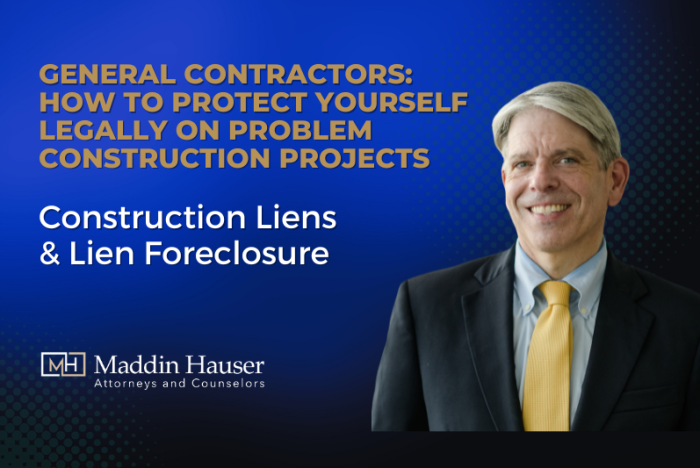
How to Protect Yourself Legally on Problem Construction Projects: Construction Liens and Lien Foreclosure
11.08.24
Join Marty Frenkel, head of Maddin Hauser’s Construction Practice Group, as he shares crucial information about construction liens, lien foreclosures, and other key operation risks for general contractors.
